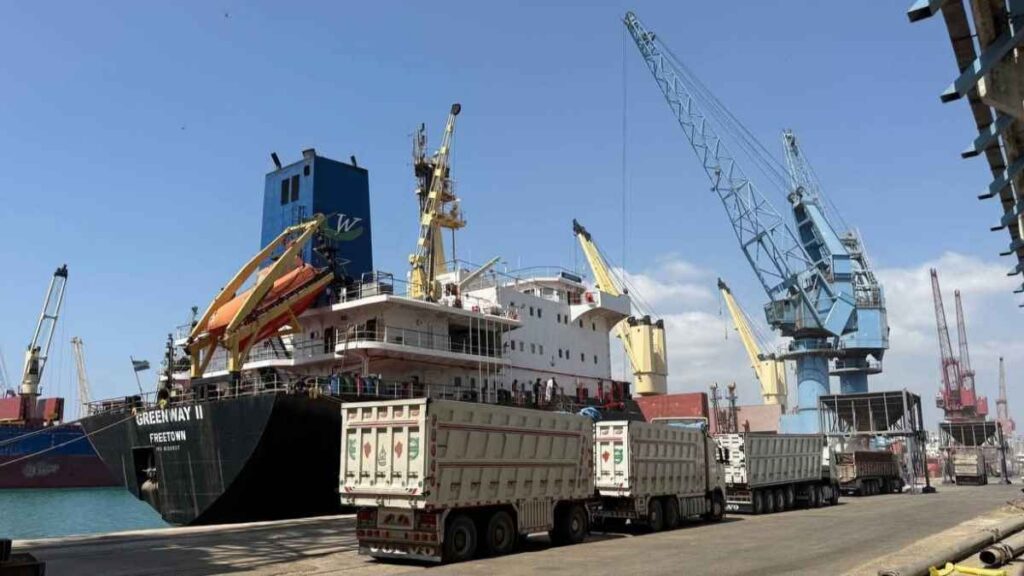37.5 thsd tons of Ukrainian wheat delivered to Syria

Abdul Wahhab al-Safar, the director of internal trade and consumer protection in the provinces of Latakia and Tartus, announced on Wednesday, September 3, the arrival of two ships carrying wheat to the ports of Latakia and Tartus in western Syria. According to Mazen Alloush, director of public relations for the General Administration of Land and Sea Ports, these ships delivered Ukrainian wheat under contracts signed by the Syrian Grain Authority. The port of Latakia received 16,000 tons, and the port of Tartus received 21,500 tons of wheat.
The main purpose of these import deliveries is to replenish strategic wheat reserves in Syria and ensure uninterrupted supply of flour to state and private bakeries throughout the country. This will help stabilize the production of bread, which is one of the most important daily needs of the population. Alloush also noted that additional contracts are currently being signed and that new wheat shipments will soon arrive at Syrian ports as part of a broader strategy to meet annual demand.
Syria’s wheat production in 2024/25 has been significantly reduced due to climate change, drought and lack of rainfall. This year’s harvest is only 25% of the annual average. Wheat production is estimated at 750,000 tons, compared to 2 million tons last year. Until 2011, Syria produced 3-4 million tons of wheat annually, which allowed it not only to cover domestic consumption but also to export surpluses, including to Europe. Agricultural experts are calling this year a “year of drought,” as more than 70% of the sown area was damaged.
The decline in production is also linked to rising prices for agricultural inputs such as fertilizers, seeds, pesticides and fuel, as well as volatile and low crop prices and insufficient government support. Many farmers have abandoned wheat in favor of less costly and more profitable crops such as cumin, anise and black cumin. High irrigation costs have further reduced productivity, forcing farmers to sell wheat before harvest as livestock feed, unable to complete the agricultural cycle.
The Syrian government failed to complete an international tender announced in April to import 100,000 tonnes of milling wheat, although 6,600 tonnes arrived at the port of Tartus from Russia that same month. After the lifting of sanctions, imports have become more convenient and less costly thanks to the restoration of direct bank transfers. Previously, each $100 transfer was accompanied by an additional cost of $2–5 through indirect routes. According to the Syrian Ministry of Agriculture, the country needs 4 million tons of wheat annually for a population of 22.5 million, indicating a deficit of 80% of the needs.
Write to us
Our manager will contact you soon



